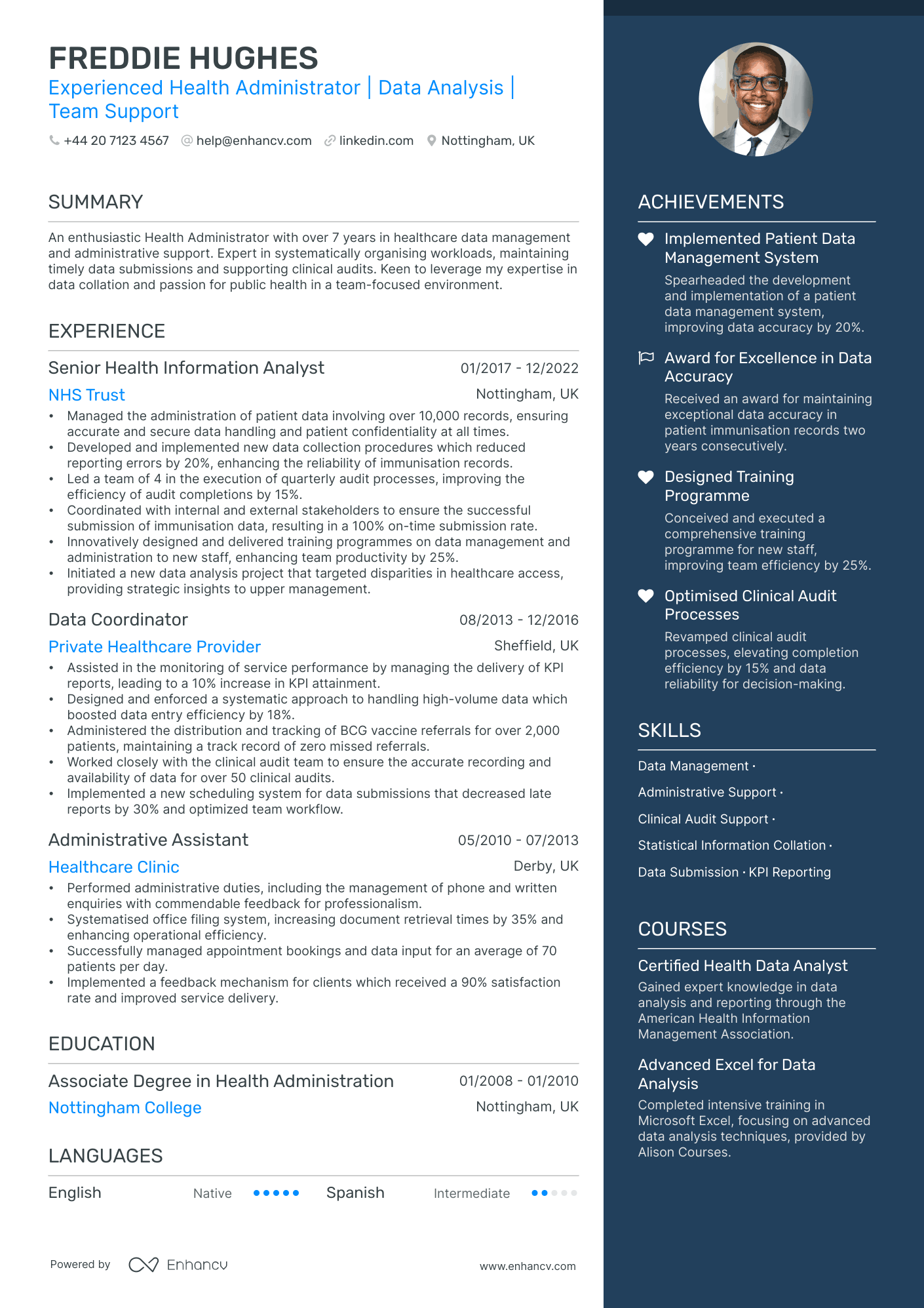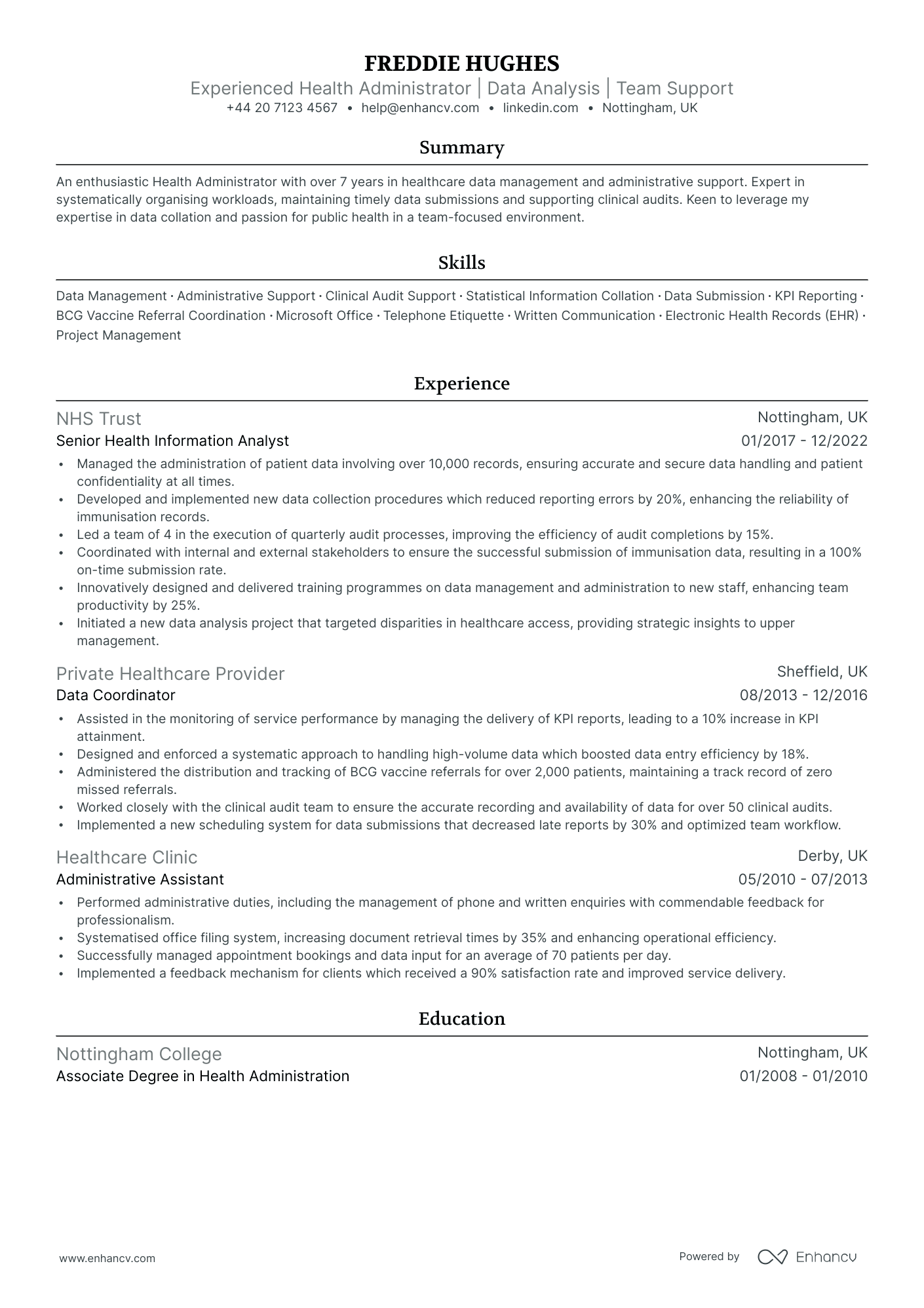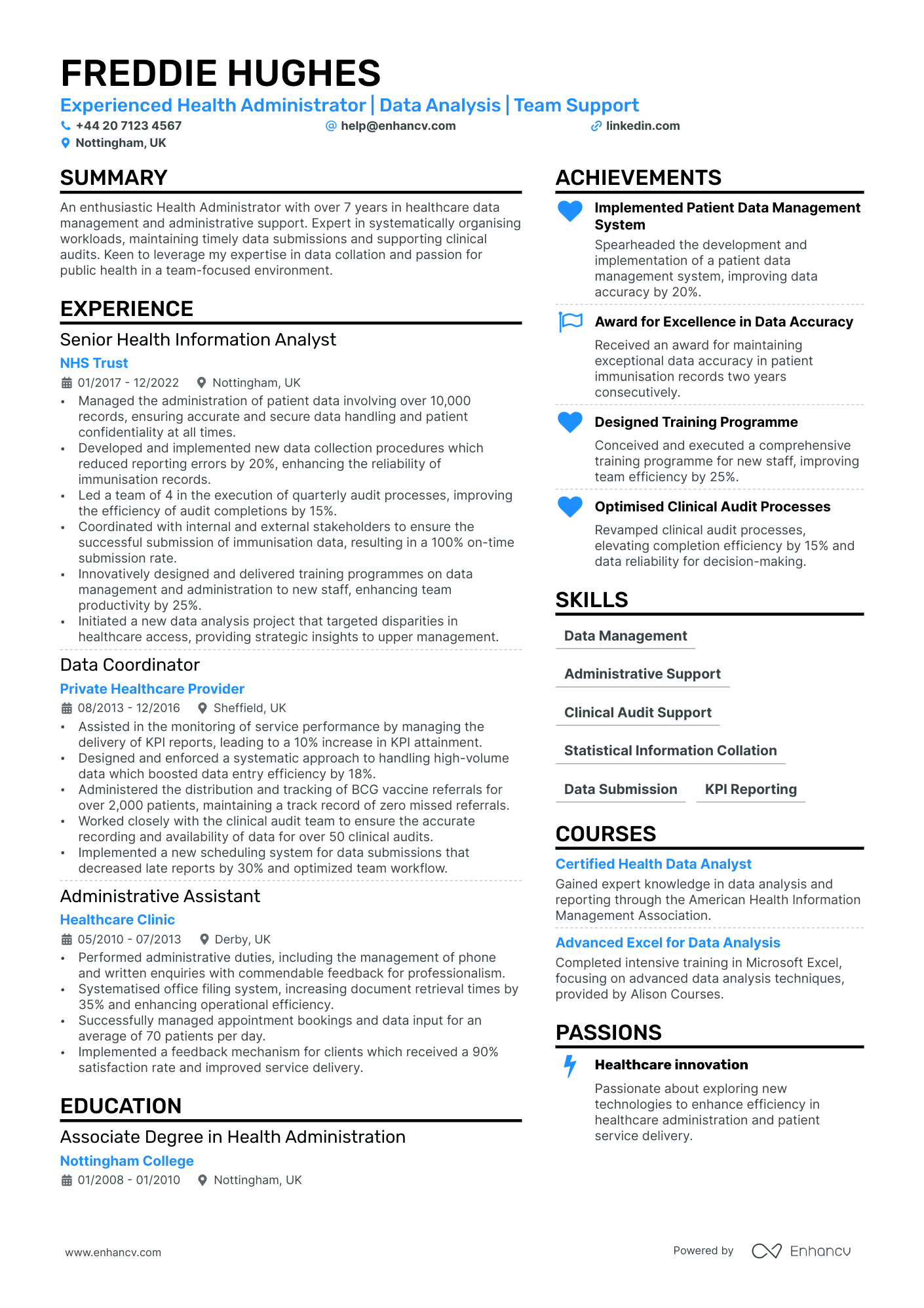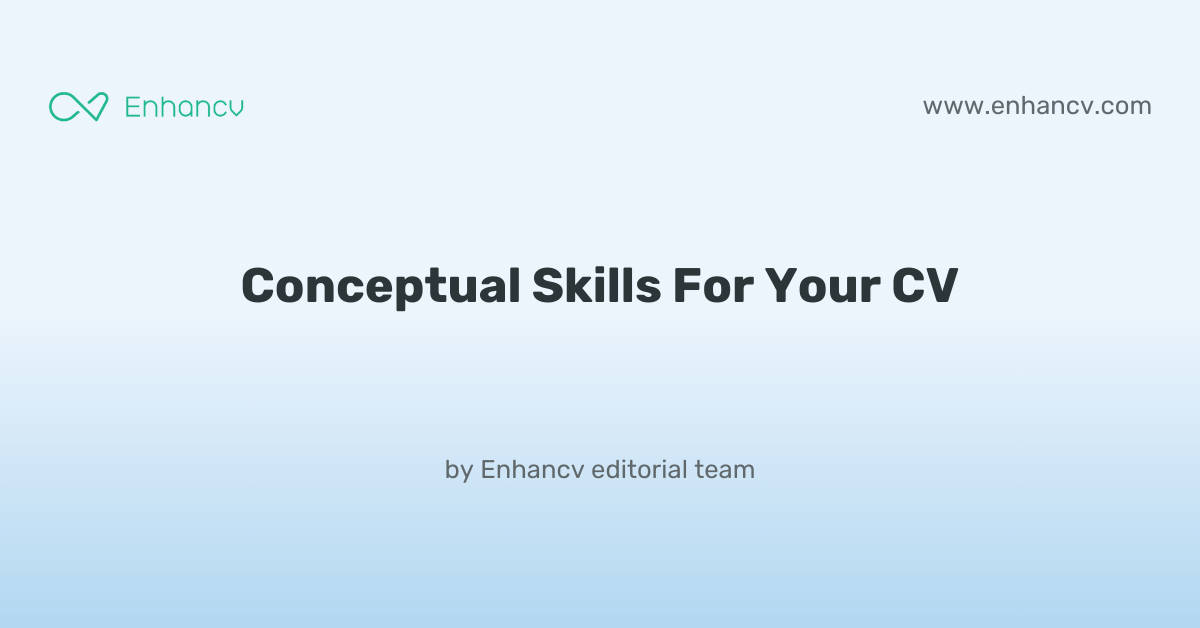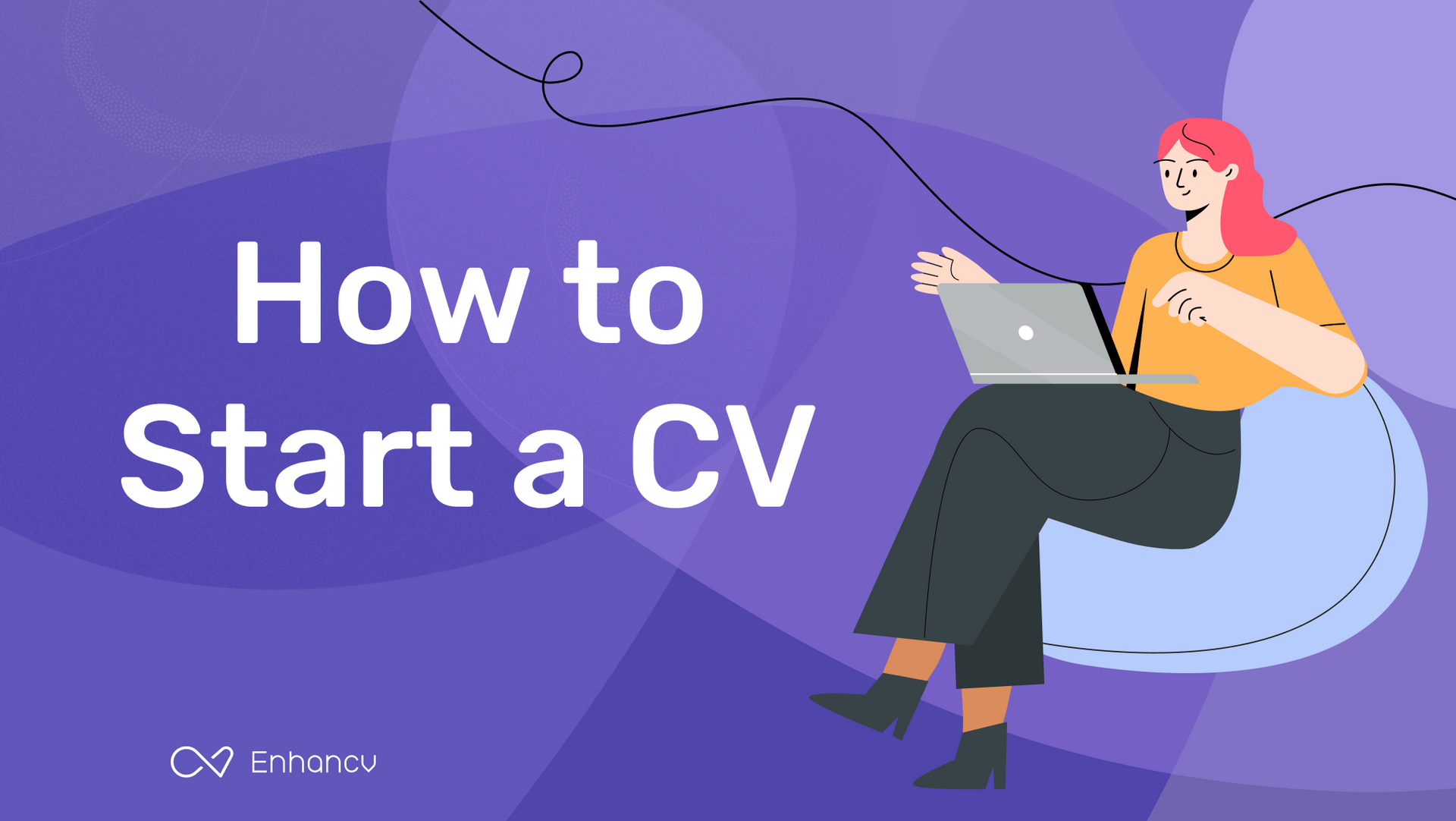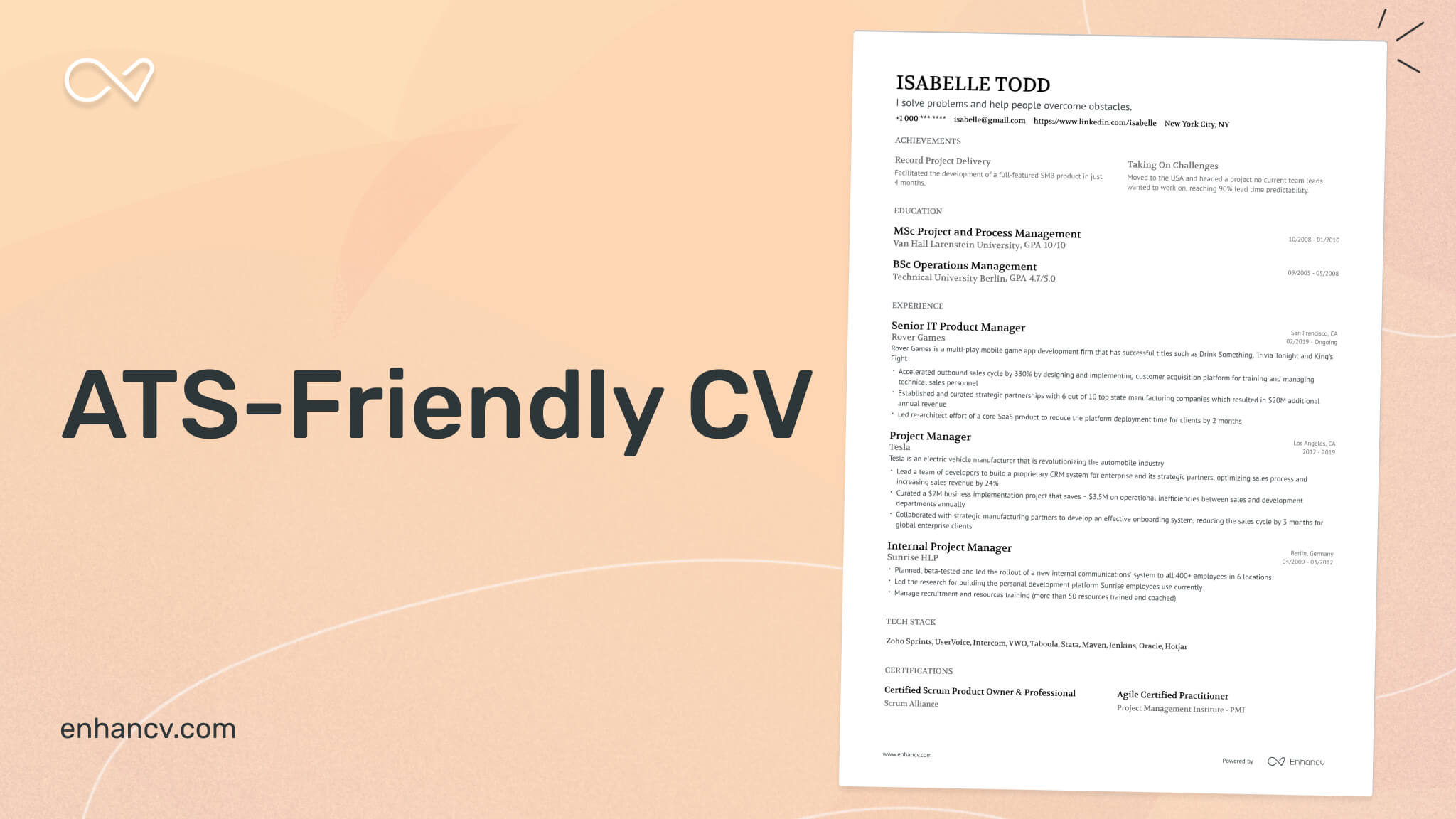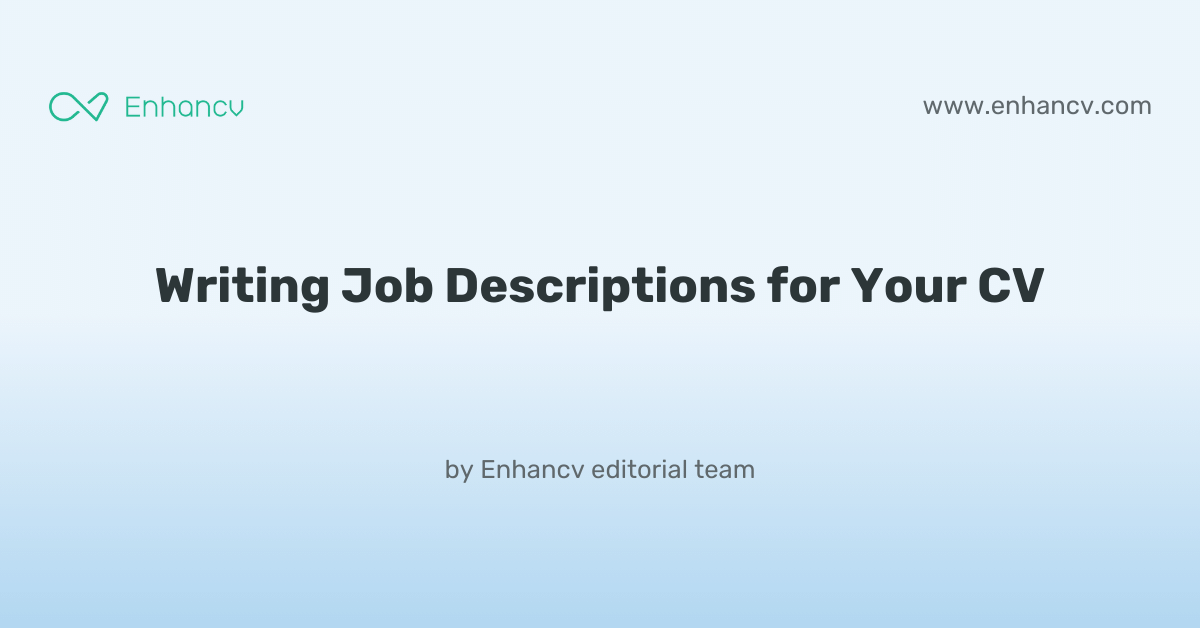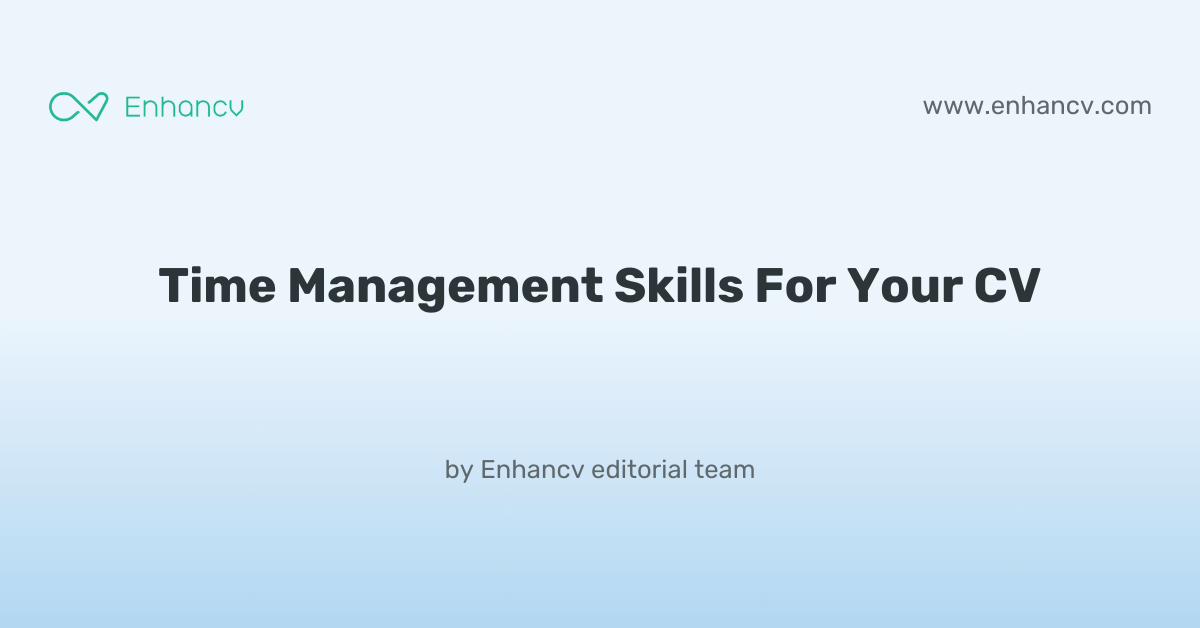Ensuring equitable vaccine distribution remains a pressing CV challenge in public health sectors worldwide. Our comprehensive guide offers strategic insights and practical tools to help you devise and implement effective distribution programmes that prioritise fairness and accessibility.
- Create an attention-grabbing header that integrates keywords and includes all vital information;
- Add strong action verbs and skills in your experience section, and get inspired by real-world professionals;
- List your education and relevant certification to fill in the gaps in your career history;
- Integrate both hard and soft skills all through your CV.
Discover more industry-specific guides to help you apply for any role in the links below:
Structuring and formatting your public health CV for an excellent first impression
The experts' best advice regarding your CV format is to keep it simple and concise. Recruiters assessing your CV are foremost looking out for candidates who match their ideal job profile. Your white space, borders, and margins. You may still be wondering which format you need to export your CV in. We recommend using the PDF one, as, upon being uploaded, it never alters your information or CV design. Before we move on to the actual content of your public health CV, we'd like to remind you about the Applicant Tracker System (or the ATS). The ATS is a software that is sometimes used to initially assess your profile. Here's what you need to keep in mind about the ATS:- All serif and sans-serif fonts (e.g. Rubik, Volkhov, Exo 2 etc.) are ATS-friendly;
- Many candidates invest in Arial and Times New Roman, so avoid these fonts if you want your application to stand out;
- Both single and double column CVs can be read by the ATS, so it's entirely up to you to select your CV design.
PRO TIP
Use font size and style strategically to create a visual hierarchy, drawing the reader's eye to the most important information first (like your name and most recent job title).
The top sections on a public health CV
- Education and Qualifications reflect academic background relevant to public health, showing foundational knowledge.
- Relevant Work Experience demonstrates hands-on experience in the public health field.
- Key Public Health Skills outline specific competencies, like epidemiology or health education.
- Research and Publications highlight contributions to public health knowledge and expertise.
- Professional Memberships and Associations show active engagement with the public health community.
What recruiters value on your CV:
- Highlight your understanding of epidemiology and biostatistics, showcasing experience in managing and analysing public health data to develop evidence-based policies.
- Demonstrate your communication skills by describing campaigns or programmes you have designed or contributed to that address public health issues within communities.
- Detail your experience with various public health methodologies, such as needs assessments, program evaluation, and intervention strategies, to show your practical skills in the field.
- Include any partnerships or collaborations with healthcare providers, non-governmental organisations, or communities, illustrating your ability to work effectively across different sectors.
- Showcase your commitment to continuous professional development by listing relevant conferences, workshops, or additional coursework in public health topics that you've completed.
Recommended reads:
What information should you include in your public health CV header?
The CV header is potentially the section that recruiters would refer to the most, as it should include your:
- Contact details - your professional (non-work) email address and phone number;
- Professional photograph - if you're applying hinting at the value you bring as a professional.
Many professionals often struggle with writing their public health CV headline. That's why in the next section of this guide, we've curated examples of how you can optimise this space to pass any form of assessment.
Examples of good CV headlines for public health:
Dr. Jane Smith | Lead Epidemiologist | Infectious Disease Prevention | PhD in Public Health | 10+ Years
Michael Johnson | Public Health Advisor | Health Policy Analysis | MSc Global Health | 5 Years Experience
Dr. Emily Clarke | Sr. Environmental Health Officer | Risk Assessment Expert | Chartered Status | 15+ Years
Tom Bennett | Health Promotion Specialist | Community Engagement | BSc Health Studies | Certified | 3 Years
Dr. Laura Evans | Deputy Director of Public Health | Strategic Planning | Doctorate in Epidemiology | 8 Years
Alice Roberts | Public Health Nutritionist | Diet & Wellness Programs | MPH | Registered Dietician | 6 Years
Your public health CV introduction: selecting between a summary and an objective
public health candidates often wonder how to start writing their resumes. More specifically, how exactly can they use their opening statements to build a connection with recruiters, showcase their relevant skills, and spotlight job alignment. A tricky situation, we know. When crafting you public health CV select between:
- A summary - to show an overview of your career so far, including your most significant achievements.
- An objective - to show a conscise overview of your career dreams and aspirations.
Find out more examples and ultimately, decide which type of opening statement will fit your profile in the next section of our guide:
CV summaries for a public health job:
The best formula for your public health CV experience section
The CV experience section is the space where many candidates go wrong by merely listing their work history and duties. Don't do that. Instead, use the job description to better understand what matters most for the role and integrate these keywords across your CV. Thus, you should focus on:
- showcasing your accomplishments to hint that you're results-oriented;
- highlighting your skill set by integrating job keywords, technologies, and transferrable skills in your experience bullets;
- listing your roles in reverse chronological order, starting with the latest and most senior, to hint at how you have grown your career;
- featuring metrics, in the form of percentage, numbers, etc. to make your success more tangible.
When writing each experience bullet, start with a strong, actionable verb, then follow it up with a skill, accomplishment, or metric. Use these professional examples to perfect your CV experience section:
Best practices for your CV's work experience section
- Highlight any epidemiological research you've participated in, detailing your role in the study design, data collection, and analysis.
- Specify your experience with public health campaigns, including objectives, your contribution, and the outcome or impact on target populations.
- Detail your involvement in policy development or health promotion, outlining the scope of policies you've influenced and the extent of your input.
- Include your experience with community health interventions, focusing on your engagement with communities and your role in implementing strategies.
- Mention any experience you have in managing public health crises or outbreaks, describing your decision-making role and the results of the actions taken.
- Provide examples of grant writing or funding acquisition for public health projects, highlighting the amount of funds secured and the objectives of funded projects.
- Document your experience in interdepartmental collaboration within public health systems and the outcomes of these collaborations.
- Outline your skills in data management and statistical analysis, including familiarity with specific software and the extent to which you've used these in your work.
- Cite any teaching or mentoring experience in public health, describing the subjects taught, the level of students or professionals mentored, and the impact of your teaching.
- Spearheaded a community health initiative that increased vaccination rates by 40% in underserved areas within 12 months through strategic outreach and partnership with local organisations.
- Designed and implemented a health promotion campaign on sexual health education reaching over 20,000 residents, resulting in a 15% reduction in reported STIs within the targeted demographic.
- Managed a budget of £500,000 for public health programs, ensuring optimal allocation of resources and a 10% cost reduction through effective contract negotiations with service providers.
- Oversaw the deployment of a mobile health application to track infectious diseases, leading to a 25% improvement in reporting speed and accuracy among health care providers.
- Collaborated with non-governmental organisations to develop a nutrition awareness project that reached over 30 schools, improving students' understanding of healthy eating habits by 60%.
- Initiated a workforce wellness program that improved employee productivity by an average of 20% and reduced sick leave by 30% through comprehensive health screenings and wellness workshops.
- Conducted epidemiological research on the impact of pollution on respiratory illnesses, influencing local government policy on air quality standards.
- Facilitated multi-sectoral partnerships leading to the successful procurement of £2 million in funding for sustainable urban health projects.
- Analysed public health data to identify trends and disparities, contributing to the development of targeted intervention strategies that benefitted over 50,000 residents.
- Led a team of health educators in delivering training sessions to over 5,000 healthcare professionals on new maternal health protocols, boosting maternal health outcomes by 35%.
- Pioneered a digital health record system for maternal care in the region, enhancing data accessibility for 300 healthcare providers and improving patient follow-up care efficiency.
- Orchestrated an international conference on public health innovations, attracting 500+ attendees and securing partnerships with 15 global health organisations.
- Established a mental health awareness campaign that reached 10,000 individuals, significantly reducing stigma and improving access to mental health services by 25% in the community.
- Evaluated the efficacy of mental health interventions using qualitative and quantitative methods, providing critical insights that shaped future mental health policies.
- Streamlined cross-department communication, resulting in a 30% increase in care coordination and a more integrated approach to mental healthcare delivery.
- Developed and executed a strategic plan for combating obesity in children leading to a 20% reduction in overweight children in surveyed schools over a 5-year period.
- Authored and disseminated public health guidance on childhood obesity that became the reference material for 120 local health departments across the United Kingdom.
- Supervised a cross-functional team of nutritionists, educators, and epidemiologists, enhancing program efficiency and employee engagement through targeted professional development opportunities.
- Championed the integration of geographic information systems (GIS) into health monitoring, improving disease outbreak response times by 50% within the municipality.
- Presented geographic health findings at 10+ national conferences, raising the profile of the department and securing an additional £150,000 in research funding.
- Supervised a team of 20+ public health professionals, achieving a 90% staff retention rate over 4 years through mentorship and fostering a culture of continuous improvement.
- Implemented an innovative school-based vaccination program which led to a 95% immunisation rate among eligible students within the first year.
- Collaborated with local media to launch a public health awareness campaign achieving a reach of over 1 million views across various platforms and a significant increase in community engagements.
- Drove a 20% improvement in operational efficiency by revamping internal processes for health intervention reporting and data analysis.
Lacking professional expertise: how to write your CV to highlight your best talents
Don't count on your lucky stars when you're applying for a role, where you happen to have less (or almost none) professional experience. Recruiters sometimes do hire inexperienced candidates if they're able to present their unique value from the get-go. So, instead of opting for the traditional, CV experience section:
- List any applicable expertise you happen to have - no matter if it's a part-time job, internship, or volunteer work. This would hint to recruiters that your profile is relevant;
- Focus your CV on your transferrable skills or talents you've obtained thanks to your whole life and work experience. In effect, you'll be spotlighting your value as a candidate;
- Separate more space for your applicable academic background and certificates to show you have the technical know-how;
- Ensure that within your objective, you've defined why you'll like the job and how you'll be the perfect match for it. Always ensure you've tailored your CV to individual applications.
Looking for more good examples for your first job? We'll show you how other candidates, with less professional experience, have created their job-winning CVs.
Recommended reads:
PRO TIP
If applicable, briefly mention a situation where things didn’t go as planned and what you learned from it, demonstrating your ability to learn and adapt.
Describing your unique skill set using both hard skills and soft skills
Your public health CV provides you with the perfect opportunity to spotlight your talents, and at the same time - to pass any form of assessment. Focusing on your skill set across different CV sections is the way to go, as this would provide you with an opportunity to quantify your achievements and successes. There's one common, very simple mistake, which candidates tend to make at this stage. Short on time, they tend to hurry and mess up the spelling of some of the key technologies, skills, and keywords. Copy and paste the particular skill directly from the job requirement to your CV to pass the Applicant Tracker System (ATS) assessment. Now, your CV skills are divided into:
- Technical or hard skills, describing your comfort level with technologies (software and hardware). List your aptitude by curating your certifications, on the work success in the experience section, and technical projects. Use the dedicated skills section to provide recruiters with up to twelve technologies, that match the job requirements, and you're capable of using.
- People or soft skills provide you with an excellent background to communicate, work within a team, solve problems. Don't just copy-paste that you're a "leader" or excel at "analysis". Instead, provide tangible metrics that define your success inusing the particular skill within the strengths, achievements, summary/ objective sections.
Top skills for your public health CV:
Epidemiology
Biostatistics
Health Policy Development
Program Evaluation
Environmental Health
Health Promotion
Disease Surveillance
Research Methods
Data Analysis
Grant Writing
Communication
Leadership
Critical Thinking
Problem Solving
Teamwork
Adaptability
Cultural Competency
Ethical Judgement
Attention to Detail
Time Management
PRO TIP
If you have received professional endorsements or recommendations for certain skills, especially on platforms like LinkedIn, mention these to add credibility.
CV education and certificates: your academic background as proof of your skill set
A common misconception about your public health CV education is that you only need it, if you have less professional experience. That is completely false. The CV education section serves to back up your technical (and sometimes personal) capabilities, fill in gaps in your work history, and show you have the initial industry background and know-how. When creating your education section:
- List your degrees in the reverse chronological order, starting with the most recent (and relevant) ones first;
- Include your degree and university names, start and graduation dates. It's optional to also denote you received a "First-Class Honours" for diplomas that are more relevant to the role;
- Curate your relevant university coursework, projects, or thesis work if you happen to have less professional expertise and need to integrate more job keywords and skills.
Your professional qualifications don't need to stop at your academic background. It's advisable to also select up to three of your most noteworthy (and relevant) industry certificates and feature them in a dedicated section. Once more, include the certificate name, the institution that issued it out, and the date you obtained it on. You could feature both hard skills and soft skills certificates, as in the examples below:
PRO TIP
Focus on describing skills in the context of the outcomes they’ve helped you achieve, linking them directly to tangible results or successes in your career.
Recommended reads:
Key takeaways
Here are five things you need to remember about writing your public health CV for success:
- Sort your experience based on the reverse chronological order, starting with your most recent career items, to showcase how you've grown your career;
- Include within your CV header your relevant contact details, a headline that could spotlight your unique value, and a photo - if you're applying for roles outside the UK or US;
- Decide to use the CV summary, if you happen to have more professional experience, and an objective, if you want to showcase your career goals;
- Within the experience section, write your bullets using action verbs, skills, and success, instead of just merely listing your on-the-job responsibilities;
- Prove your technical skills, using your education and certificates, and your soft skills, with your achievements and strengths sections.
